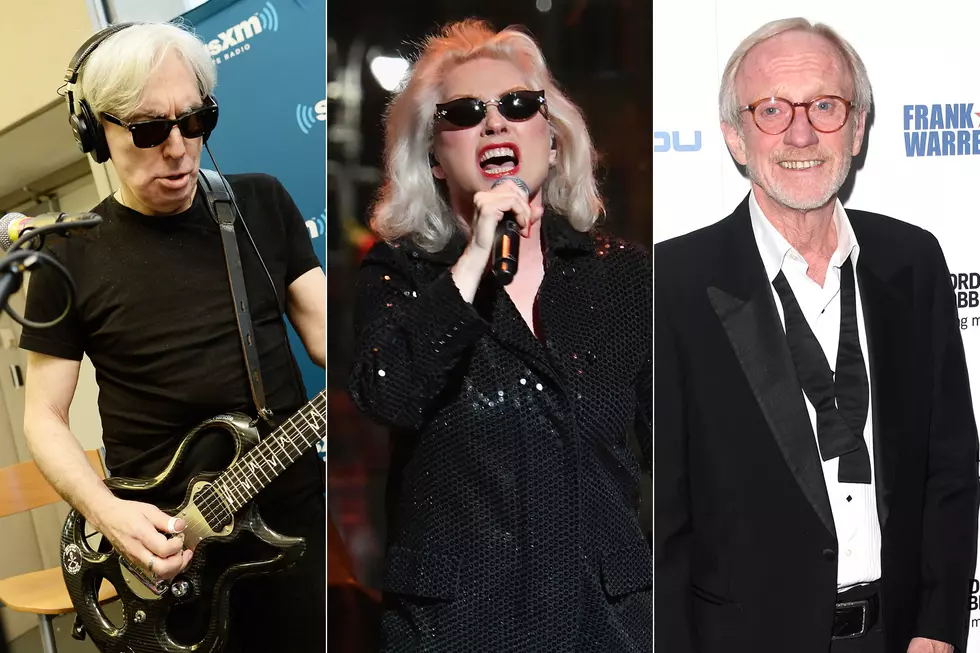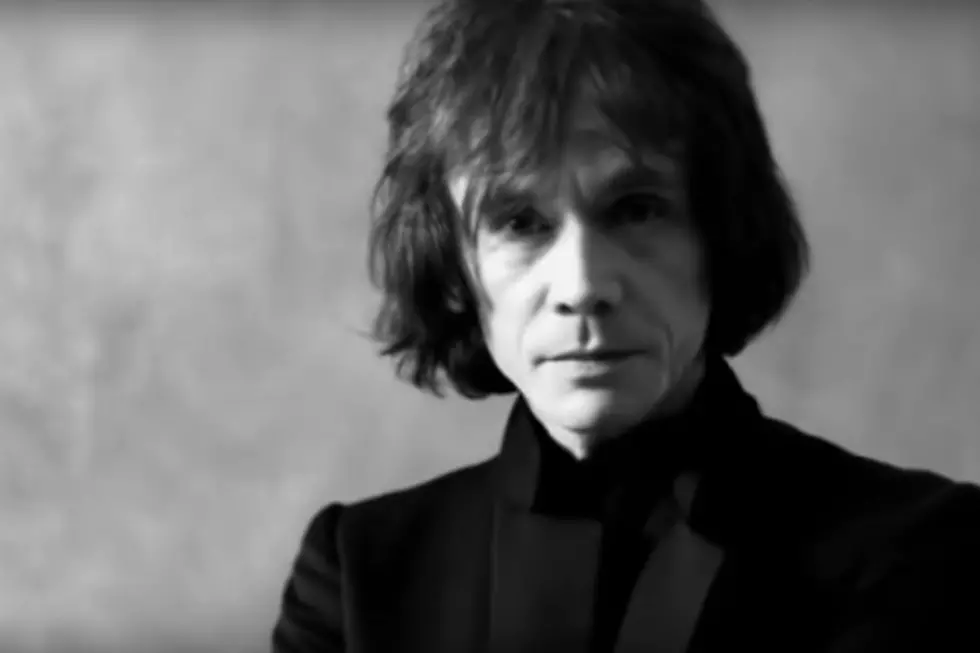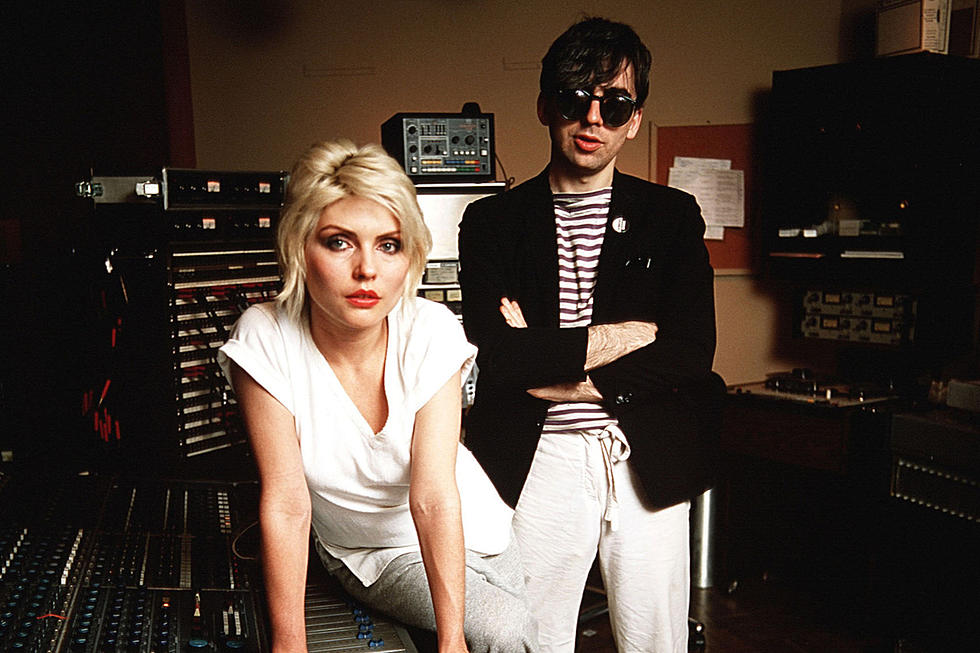
Chris Stein and Mike Chapman Revisit Blondie’s ‘Heart of Glass’ at 40: Exclusive Interview
Given its status as a bonafide classic, it seems odd to recall that Blondie's “Heart of Glass” was once considered controversial around the time of its release as a single in January 1979. A band that emerged from New York's downtown punk scene, Blondie recorded “Heart of Glass” during a period when disco was frowned upon by the rock community (The single's release was just several months before the infamous Disco Demolition Night at Chicago's Comiskey Park). But Blondie guitarist Chris Stein, who co-wrote the song with singer Deborah Harry, didn't feel that way at the time.
“I liked disco music,” he tells us. “I didn't have any anxiety about doing that song. That was part of the whole thing.”
In the end, it was Blondie who had the last laugh. On April 28 that same year, “Heart of Glass” topped the Billboard pop chart—the first of four No. 1 singles for the band. Today the song is a mainstay on radio, TV shows, movies, and of course the band's live performances. It embodies what Blondie was and is still all about: a desire to embrace new styles and the definition of New York City cool.
An important part of the song's success and longevity is Australian producer and songwriter Mike Chapman; he helmed Blondie's third album, 1978's Parallel Lines, which contains the track. Chapman still holds that iconic song in high esteem.
“'Heart of Glass' is a masterpiece in many ways,” he tells us. “It will never sound dated. It is simply one of those tunes that works in every way.”
Before his relationship with Blondie, Chapman was already an established hitmaker primarily with his partner Nicky Chinn, having produced and/or written for Suzi Quatro, the Sweet, and Arrows (he later had hits with the Knack, Toni Basil, Pat Benatar, Huey Lewis and the News and Tina Turner). He was brought in by Chrysalis Records co-founder Terry Ellis to collaborate with Blondie. At the time, the band's first two albums, Blondie (1976) and Plastic Letters (1977), didn't catch fire with the public, and Chrysalis purchased Blondie's contract from their previous record label Private Stock.
“He asked me to come see them at the Whiskey a Go Go in L.A.,” Chapman recalls. “I went two nights running and met the band briefly after the second show. I thought they were amazing and told him I would love to work with them. Shortly after that, I went to New York and met with Debbie and Chris at the Gramercy Park Hotel where they were living. We sat on the floor together and listened to a few rough demos. I loved the new song ideas and told Terry to book some rehearsal time and I would start the recording process.”
At the beginning of rehearsals for the album in late 1977, the band – whose lineup at this point consisted of Harry, Stein, drummer Clem Burke, keyboardist Jimmy Destri, guitarist Frank Infante, and bassist Nigel Harrison – played Chapman all the songs that they had. “Most of the ideas were unfinished songs that I needed to help them arrange and basically finish writing,” Chapman recalls. “One of the demos was a song called 'Once I Had a Love.' It had a reggae feel and I told them the title was too long and suggested they call it 'Heart of Glass,' which was one of the lines in the chorus. I thought the song was an obvious hit if the arrangement was right. We spent the first day of rehearsal rearranging it and I decided that it should have a bit of a Donna Summer vibe, which pleased Debbie. She loved Donna Summer.”
A few years earlier, Harry and Stein co-wrote the song that became “Heart of Glass” — it had been kicking around, but they were never satisfied with the arrangement before Chapman entered the picture (Those early versions of the tune, “Once I Had a Love” and “The Disco Song,” would be later released on the 2018 EP Heart of Glass). “We were living in a loft in New York's then-notorious Bowery area, rehearsing at night in rooms so cold we had to wear gloves,” Harry told The Guardian in 2013. “'Heart of Glass' was one of the first songs Blondie wrote, but it was years before we recorded it properly. We'd tried it as a ballad, as reggae, but it never quite worked. At that point, it had no title. We just called it 'The Disco Song.'"
“The lyrics weren't about anyone,” she continued. “They were just a plaintive moan about lost love. At first, the song kept saying, 'Once I had a love, it was a gas. Soon turned out, it was a pain in the ass.' We couldn't keep saying that, so we came up with, 'Soon turned out, had a heart of glass.'"
The difference makers for the version of “Heart of Glass” on Parallel Lines was the band's incorporation of a synthesizer and Roland drum machine that gave the track a very modern-sounding and dance-oriented sheen. “Synchronizing [the synthesizer and drum machine] was a big deal at the time,” Stein said in an interview with The Guardian. “It all had to be done manually, with every note and beat played in real time rather than looped over. And on old disco tracks, the bass drum was always recorded separately, so Clem had to pound away on a foot-pedal for three hours until they got a take they were happy with.”
“It was a very hard track to record,” Chapman adds. “The band were very loose as players and the track needed to be really tight. Clem and Nigel both had issues with me during the recording of the track; we were very close to having some serious fights the whole time. It took a week to get it right, but in the end, it sounded amazing. I have to say that the sound of the final record came more from me than from the band. That was my job.”
As with “Heart of Glass,” the recording of Parallel Lines itself wasn't easy, although it later went platinum by June 1979. “The whole album was extremely difficult to record,” says Chapman. “Every track was difficult. The band was, as I said, very loose and I had to teach them all how to be tighter and how, without that, we would not have the hits we needed. It was the hardest record I had ever made up until that point.”
“Mike was great,” Stein says of the producer's work on Parallel Lines. “We were lucky to be able to hook up with him. He was a big mover in shaping the whole thing. It worked out the way it did.”
Ironically, “Heart of Glass” was the third single released off of Parallel Lines, following “I'm Gonna Love You Too” and “Hanging on the Telephone,” both of which didn't make the Billboard Hot 100. But the chart-topping success of "Heart of Glass" propelled the still-relatively unknown group to worldwide popularity. “I knew if the band tried hard enough, and played well enough, that the song could be a massive hit record,” says Chapman. “I was brought in to polish up the group and deliver the hits. I always knew that 'Heart of Glass' would be a smash, even thought it could be a No. 1, given Debbie's amazing vocals and her brilliant stage presence.”
But the success of the song was not without some backlash from those who knew of Blondie's punk roots (Studio 54, the epicenter of New York City's disco scene, is featured at the beginning of the video for the song). As Harry recounted in her 1982 book Making Tracks, co-written with Stein and Victor Bockris, “When we did 'Heart of Glass' it wasn't cool in our social set to play disco, but we did it because we wanted to be uncool. ... A lot of people we'd hung out and been close friends with on the scene for years said we'd sold out by doing a disco song. This a blatantly ridiculous statement. It always pissed me off that people could have the nerve to pretend to be so stupid. We'd been consciously looking for a sound to break into American radio, and 'Heart of Glass' was one of the most innovative songs Blondie record...The reason it's a hit because it's a good song.”
Blondie and Chapman continued their working relationship on subsequent albums Eat to the Beat, Autoamerican and The Hunter. Though it has been years since they've last collaborated on new projects together, the respect and admiration between the band – who will be touring this summer with Elvis Costello and the Imposters – and the producer lingers. “Mike was a great producer and still is.” says Stein. “I would still like to do something else with him one day.”
Looking back on “Heart of Glass” four decades later, Chapman considers it one of his best works. “The song is great, the arrangement is cool and quirky, and Debbie's performance is breathtaking,” he says. “Without her vibe and her vocal, we would not have had the same success. It really was all about Debbie Harry. And I am happy to say that I am still very close to everyone in the band, even Clem.”
Top 100 '80s Rock Albums
More From KLTD-FM







